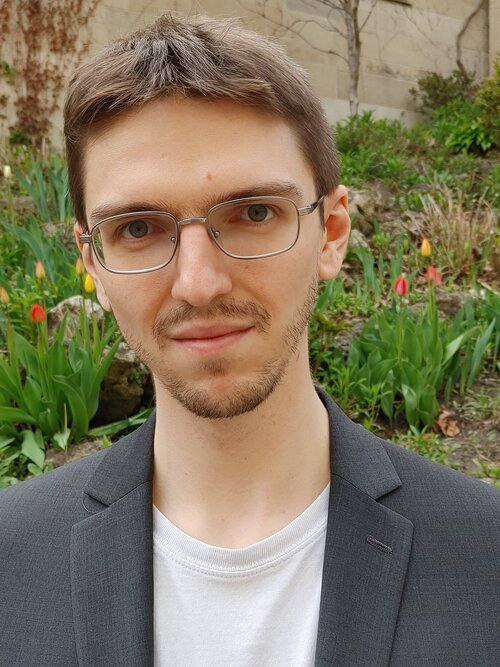
Contact Information
Literatures, Cultures & Linguistics Building
707 S Mathews Ave
Urbana, IL 61801
Office Hours
Biography
Walker Horsfall is from Toronto, Canada, and received his PhD from the Centre for Medieval Studies at the University of Toronto.
His research, broadly conceived, is on the intersection between medieval literature and natural philosophy. His main focus is on Middle High German religious and love poetry from the twelfth to the fourteenth centuries, with additional attention to Arthurian courtly romances and mystical texts. His work examines what these medieval texts can contribute to our understanding of the histories of gender, sexuality, religion, and science. Currently, he is investigating the existence of "communities of pleasure" in the High Medieval period, as well as the use of rhetorical and narratological strategies in medieval German and Scandinavian texts as a way of encoding contemporary scientific information, particularly astronomical information.
Education
PhD, Centre for Medieval Studies, University of Toronto
Courses Taught
GER 211 - Conversation and Writing I
GER 212 - Conversation and Writing II
GER 270 - Sexuality and Literature
GER 470 / 571 - Medieval German Studies
SCAN 251 - Viking Mythology
SCAN 252 - Viking Sagas in Translation
SCAN 376 - Children and Youth Literature
Additional Campus Affiliations
Assistant Professor, Germanic Languages and Literatures
Assistant Professor, Program in Medieval Studies
Recent Publications
"Astronomical (In)accuracy in Heinrich von Mügeln’s Der meide kranz," in Writing the Heavens: Celestial Observation in Medieval and Early Modern Literature, eds. Aura Heydenreich et al., 51–68 (Boston/Berlin: De Gruyter, 2024). Permanent URL: https://doi.org/10.1515/9783111610863-004
“Die Klage der Kunst,” co-authored with Markus Stock, in Konrad von Würzburg: ein Handbuch, ed. Markus Stock, 108–117 (Boston/Berlin: De Gruyter, 2023).
“Frauenlob’s Catechetical Imperative: Form and Function in the Kreuzleich,” Zeitschrift für deutsche Philologie 138.1 (2019): 67–82.
“Konrad von Würzburg – A Bibliography. 2nd, revised and enlarged edition,” co-authored with Markus Stock, published on the TSpace Repository, University of Toronto Libraries. Permanent URL: https://hdl.handle.net/1807/127259